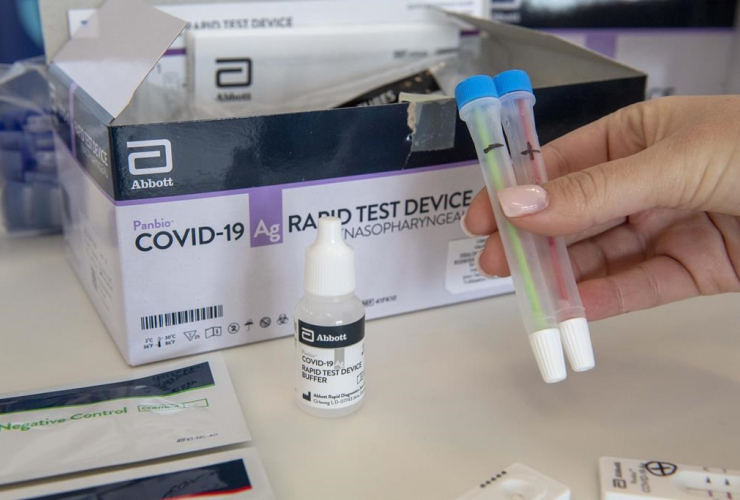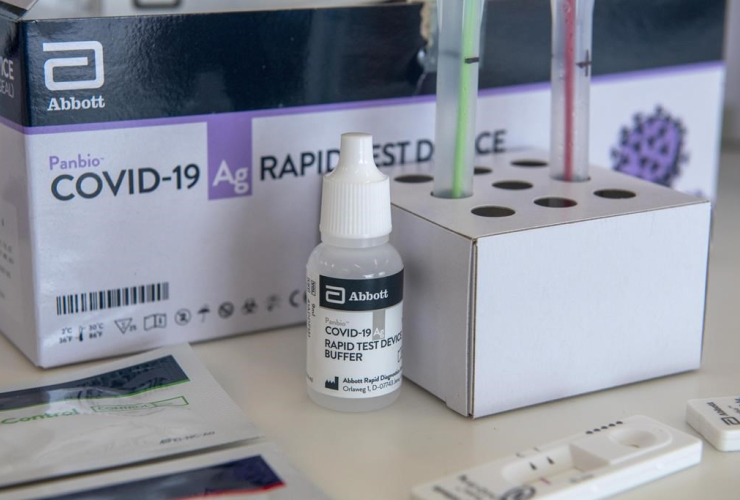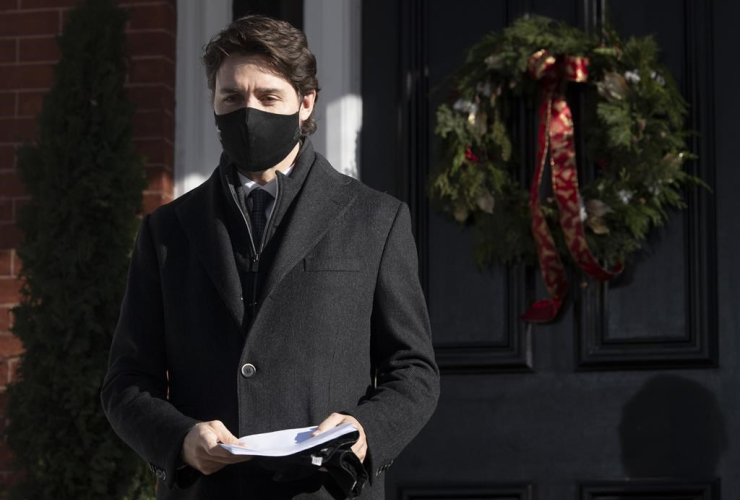A top public health official said Thursday that priority groups in Canada should start receiving COVID-19 vaccine doses early next year as new restrictions for those entering New Brunswick effectively popped the so-called Atlantic bubble.
"There has been a great deal of preparation taking place behind the scenes to ensure Canada is well positioned to obtain COVID-19 vaccines and, building on our well-established systems, provide access to every Canadian who wants one in 2021," deputy chief public health officer Dr. Howard Njoo told reporters.
The first batch is expected to be delivered during the first three months of 2021, but supplies will be limited initially. Those first in line will include seniors, people with serious health conditions and essential workers.
Ottawa has inked final agreements with five vaccine makers and is in advanced negotiations with two more. The deals would secure 194 million doses with the option to buy another 220 million more, said Arianne Reza, the assistant deputy minister of procurement for Public Services and Procurement Canada.
The hopeful vaccine update was countered by deflating news out of Atlantic Canada, as New Brunswick announced anyone entering the province must isolate for 14 days. That province reported 12 new cases on Thursday.
New Brunswick’s move follows Newfoundland and Labrador and Prince Edward Island’s temporary withdrawal from the Atlantic bubble earlier this week. Previously, residents of the four Atlantic provinces had been able to travel freely within the region without isolating.
Meanwhile, Quebec reported 1,464 new infections on Thursday, the province’s highest daily tally since the pandemic began.
It also recorded 32 additional deaths, eight of which took place in the last day.
Ontario, which is expected to unveil new projections Thursday afternoon, recorded 1,478 new cases and 21 more deaths.
Two weeks ago, provincial health advisers predicted there could be as many as 6,500 new daily infections by mid-December if nothing was done to limit the spread of the virus.
It will be the first such data release since Toronto and neighbouring Peel Region started facing the province’s toughest restrictions earlier this week.
In the North, Ottawa is pledging $19 million to help Nunavut deal with its worsening COVID-19 outbreak. Until early November, the territory had no COVID-19 cases, but now there are 153 active infections.
This report by The Canadian Press was first published Nov. 26, 2020.





Comments